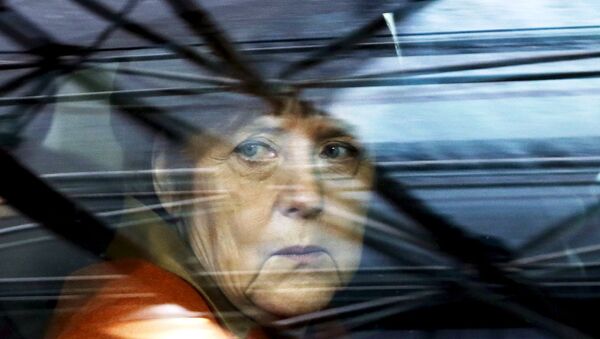MOSCOW (Sputnik) — AfD, although only being established three years ago, managed to gather between 12 and 24 percent of the vote in three states that voted over the weekend — Saxony-Anhalt, Baden-Wuerttemberg and Rhineland-Palatinate while Merkel's Christian Democratic Union (CDU) suffered losses in two out of the three states, according to the official election results published Monday.
"Undoubtedly the results were in part a protest against Merkel’s refugee policies. A majority of Germans disapprove of Merkel’s open door policy and these numbers are particularly high in the east," Charles Lees, professor of politics at the University of Bath, told Sputnik.
"Even though the success of the AfD may not have immediate results, in the long term, the CDU will try to move to the right to starve the AfD of political oxygen", Lees stressed.
Harald Bauder, academic director of the Ryerson Centre for Immigration and Settlement (RCIS), believes that most of the AfD support came from protest votes while not ruling out a possible repeat of what happened with the party The Left, a former communist party that entered the German parliament after the county's reunification by drawing support away from centrist parties.
"The AfD seems to be beyond mainstream politicians’ comfort zone. A similar phenomenon could perhaps be observed in the context of the socialist Die Linke [The Left], which was and still is considered by many as linked to totalitarianism," Bauder told Sputnik.
The next German regional election will be held in Mecklenburg and Berlin in the fall of 2016, with no exact date set as yet.
Germany has become a key destination for hundreds of thousands of refugees and immigrants fleeing war and poverty in the Middle East and North Africa since the start of 2015. The country’s interior ministry estimates that Germany received around 1.1 million migrants last year alone.




